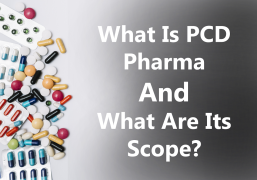Value of Pharmaceutical Marketing and Promotion
The FDA-regulated, scientifically-based information conveyed by our company representatives to physicians helps disseminate knowledge about medicines. Providing physicians with up-to-date information about pharmaceutical products supports appropriate care decisions and can lead to better health outcomes. Bringing information about new treatments into the healthcare system often is challenging and requires significant effort. Even after many years new types of medicines are introduced, a large share of patients who should be using them according to clinical practice guidelines go untreated. In fact, these treatment gaps are often viewed as serious public health problems that lead to poor patient outcomes and high health costs—both human and economic— that could have been avoided.
Our representatives also provide physicians and other health care professionals with information about new studies and clinical data, new dosing information, and updates on safety and risk information. Timely access to this information helps support effective patient care, and pharmaceutical representatives disseminate it to health care providers. Prescription Marketing Helps Addresses Treatment Gaps. While pharmaceutical marketing often is viewed as leading to overuse of medicines, data across scores of peer reviewed studies demonstrates that medicines used to treat many conditions are far more likely to be underused than overused.1 Pharmaceutical marketing can play a role in raising awareness of the need for treatment and helping patients get the treatment they need.
Pharmaceutical Marketing Helps Raise Awareness about Treatments for Chronic Diseases, the Leading Driver of Health Care Spending.
Pharmaceutical Marketing Ensures Timely Access to New Studies, Clinical Data, Dosing Information, and Updated Drug Safety Profiles.
Pharmaceutical company representatives provide one source of help in bridging this information gap by providing physicians with the latest clinical evidence and updated drug safety and risk profiles as they develop. This helps speed the translation of clinical evidence into clinical practice, and can help improve patient outcomes.
Pharmaceutical marketing and promotion provide value to physicians by providing educational and scientific information about new medicines. However, marketing of new medicines by pharmaceutical companies is only one factor considered by physicians. This marketing does not exist in a vacuum—physicians’ judgment and experience, many other sources of information, formularies and other utilization management techniques all play a large role in determining what, if any, medicine a patient receives. While pharmaceutical marketing is far from the sole source of information for physicians, it plays an important role in providing information about brand medicines and helps balance other factors that emphasize promoting older treatments and that reduce use of needed medicines.




